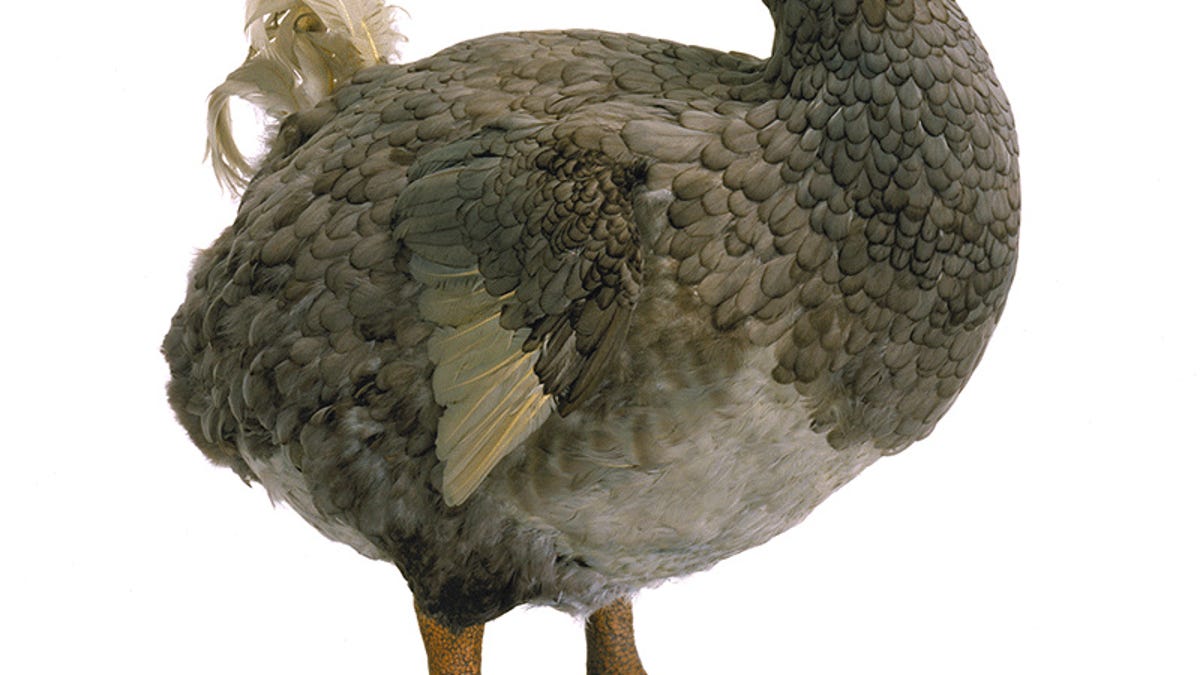Extinct dodo birds weren't as dumb as you think, study says
Dodos may have a reputation as the dunces of the bird world, but new research suggests they weren't just a flock of lunkheads.
Look up the word "dodo" in the thesaurus and you will find entries like "ignoramus," "dimwit," "fool" and "dumdum." This is not a very flattering portrayal for the famously extinct flightless bird.
The legend of the dodo is that it was too stupid to survive. A new research study is here to counteract the idea that dodos were just a bunch of featherbrained birds with a lack of smarts.
Dodos lived on the island of Mauritius in the Indian Ocean. The last sighting of a dodo happened way back in 1662. A study lead by Eugenia Gold of Stony Brook University in New York looked at a well-preserved dodo skull from the Natural History Museum in London. The skull was scanned and digitized and the data compared to pigeon skulls.
"It's not impressively large or impressively small--it's exactly the size you would predict it to be for its body size," Gold said. "So if you take brain size as a proxy for intelligence, dodos probably had a similar intelligence level to pigeons."
Pigeons have a pesty reputation, but studies have shown they may be smarter than we give them credit for. Researchers taught pigeons to use a touchscreen for a 2013 study. A 2008 study says that pigeons have self-recognition abilities similar to that of a 3-year-old human.
Gold notes that dodos were first discovered by people in the 1500s and the docile birds were soon used as a meat source. That's a big reason why the species didn't survive more than a 100 years after human contact. They were eaten by people and by predators brought onto the island.
Gold's research team published a paper on the findings, titled "The first endocast of the extinct dodo (Raphus cucullatus) and an anatomical comparison amongst close relatives (Aves, Columbiformes)," in the Zoological Journal of the Linnean Society on Tuesday.
Dodos will continue to fascinate science. Gold says that much is still unknown about the bird's biology due to the rarity of specimens. "There are so few complete dodo skeletons we may never know exactly how they looked or lived," says the Natural History Museum in London. At least this new study gives us some insight into their much-maligned brains.


